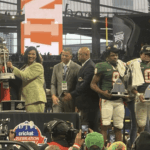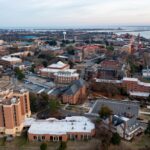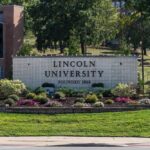
How Historically Black Colleges Are Rewriting the Rules of Innovation
The digital economy continues to redefine success, and historically Black colleges and universities (HBCUs) are leaning all the way in. No longer confined to the traditional boundaries of higher education, HBCUs are evolving into hotbeds of innovation—igniting the next wave of Black tech talent, entrepreneurship, and economic impact.
Backed by new funding streams, strategic partnerships, and a renewed cultural momentum, HBCUs are cementing themselves as leaders in the innovation economy. They’re producing more than just degrees—they’re launching startups, advancing climate technology, and unlocking billion-dollar ideas from campus classrooms to global stages.
A New Era of HBCU-Led Innovation
Once underfunded and overlooked, HBCUs are now making headlines for a very different reason: transformation. In recent years, these institutions have attracted record investments from private sector giants, philanthropic organizations, and federal agencies—each recognizing the unique power of Black-led innovation.
From Google’s $50 million commitment to support HBCU computer science programs to the $25 million initiative by the Pritzker Traubert Foundation for tech-driven economic mobility, HBCUs are no longer on the periphery—they’re at the center of America’s innovation story.
What sets them apart isn’t just their ability to adapt, but their refusal to compromise cultural identity for institutional progress. Innovation at HBCUs is rooted in history, resilience, and the vision of a future where access and excellence coexist.
Spotlight: Leading HBCU Innovation Centers
Several schools are becoming case studies in what 21st-century education should look like:
- Howard University launched the Howard West initiative in collaboration with Google to expand tech education opportunities for Black students.
- North Carolina A&T State University, already a top producer of Black engineers, has deepened its research capacity with its new STEAM Innovation Complex.
- Spelman College and Morehouse College have become national leaders in interdisciplinary tech programming, from virtual reality to coding boot camps.
- Morgan State University unveiled a new center for urban resilience, focusing on climate innovation and environmental justice.
- Prairie View A&M University has launched a Center for Excellence in Research and Education, connecting students with applied research opportunities in AI and data science.
These institutions are proving that Black excellence doesn’t need validation—it needs infrastructure. And now, they’re building it.
Black Tech Is More Than a Trend—It’s a Movement
As tech continues to dictate the trajectory of global industries, HBCUs are stepping into a crucial role: shaping a more equitable digital economy. With Black Americans historically underrepresented in STEM and startup ecosystems, HBCUs are bridging gaps that Fortune 500s and Ivy League schools have long failed to close.
They’re not just training the next wave of software engineers—they’re cultivating problem solvers who understand the unique needs of their communities. This intersection of identity, innovation, and impact gives HBCU-led projects a cultural relevance that resonates far beyond Silicon Valley.
Overcoming Barriers, Creating New Blueprints
Despite the progress, the road isn’t without challenges. Limited endowments, outdated infrastructure, and bureaucratic red tape have historically slowed down innovation pipelines at HBCUs. But these schools are refusing to be defined by scarcity.
Collaborations with industry leaders—like Apple’s Racial Equity and Justice Initiative, IBM’s tech training programs, and the Department of Energy’s recent HBCU clean tech partnerships—are helping schools bypass financial bottlenecks while amplifying student access to cutting-edge resources.
By embedding innovation directly into their mission, HBCUs are also nurturing a generation of entrepreneurs who don’t just want to enter the workforce—they want to reimagine it.
The Economic Ripple Effect of HBCU Innovation
The stakes are high. According to McKinsey & Company, closing the racial wealth gap could add $1.5 trillion to the U.S. economy by 2028. HBCU-led innovation hubs are poised to play a key role in making that vision real.
Startups launched out of these institutions are tackling everything from health equity to climate change and digital infrastructure in under-resourced neighborhoods. And with increased interest from venture capitalists, the possibilities are expanding.
These innovation centers aren’t just solving problems—they’re creating pathways. For Black students. For their families. For their communities.
Why the Focus on HBCUs Matters Now More Than Ever
In a time when the relevance of DEI initiatives is being challenged, HBCUs offer proof that inclusive innovation is not just aspirational—it’s essential. These schools remind the world that brilliance can bloom anywhere, and when it’s properly nurtured, it can shift the entire economic landscape.
As tech evolves, so too must the institutions that shape it. HBCUs are stepping up—not just to participate, but to lead.
Sort By
 Register for exclusive access to VIP events and more
Register for exclusive access to VIP events and more
Sign up for periodic updates, special discounts, and more!





















